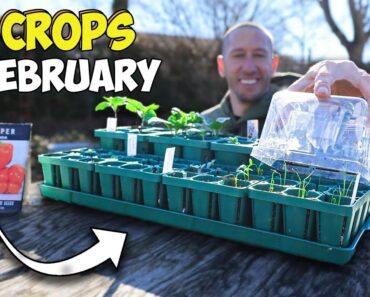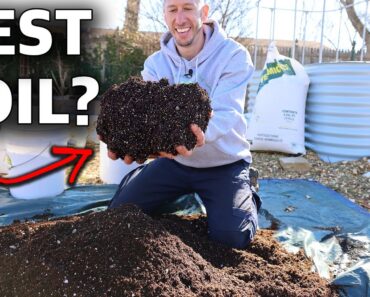Raisins are a nutritious snack, as well as an excellent addition to several desserts and other recipes. While they are already dehydrated and have a much longer shelf life than their moist cousins, grapes, there are a few more things you can do to extend these sweet morsels’ shelf life.
To store raisins long term, you can follow several processes. Whether freezing, vacuum sealing, or jarring, there is a method that will suit your raisin volume, schedule, and living situation. With this guide, you will never have to throw away expired raisins again.
In this article, we will examine raisin’s natural shelf life and provide detailed instructions on the best methods for storing raisins long term. We will also outline some of the equipment and tools you will need to keep your raisins edible and delicious for years to come. If you have ever wondered how you can extend the life of this nutritious snack, read on.
How Long Do Raisins Last?
Some people think that since raisins are already dehydrated that they will last forever in their pantry or cupboard. While it is true that the low water content in these nutritious snacks adds time to their shelf life, they are still perishable.
How long do dried raisins last?
Raisins are generally good for 6 to 12 months after the package expiration date if they remain unopened. Once you open that package, however, your raisin will be good for about six months maximum if kept in a cool, dry place like a pantry. Placing them in a sealed container will bump their lifespan up by a few months.
Do Raisins Go Bad?
Yes, raisins can go bad. You can extend their shelf life by keeping them in a cool, dry place and placing them in a sealed container.
Problems With Storing Raisins
When considering long term storage for your raisins, a good place to start is understanding why food goes bad in the first place. The biggest culprits that account for food spoiling are oxygen, water, heat, light, and microbes.
Oxygen is a highly reactive chemical that is constantly oxidizing everything it comes into contact with, and this interaction is partially responsible for food spoiling. Air is also a transmitter of microbes that can land on food and begin devouring it.
Similarly, water will increase the chances of molds and yeasts developing that will spoil food, and when conditions are right, certain temperatures will turn your food into a full-blown petri dish.
Exposure to light will lead to photodegradation that reduces the nutritional content and the flavor of your food.
This is why, when storing raisins for the long term, you have to eliminate exposure to these elements as much as possible.
Related: How to Store Canned Food Long-Term – The Complete Guide
Vacuum Sealed Bags for Storing Raisins
This is an excellent process that uses a vacuum sealing machine such as the GERYON Vacuum Sealer Machine to remove all the oxygen from a bag before sealing. These airtight containers are an excellent way to store your raisins for the long term.
- The first step is washing your food to remove any dirt or contaminants hiding in nooks and crannies. If you are repackaging store-bought raisins, you can skip this step.
- Place the raisins in the vacuum bag. You will most likely need to use a specific type of bag compatible with your vacuum sealing machine.
- Place the open edge of the bag into the machine.
- Begin the vacuum sealing process. Some machines require you to push a button when your bag is ready, while others have an automatic sensor that begins the process automatically.
- Watch as the air is sucked out, and the bag is heat-sealed.
- Repeat the process until you have packaged all of your raisins.
- Place your sealed bag in your storage location, preferably in a cool, dark place like a pantry or cellar.
It is important to note that these bags are not pest-proof, so if you have problems with rats, mice, or other chewing animals, it is best to place them into metal containers that are not susceptible to these threats.
Using Glass Jars to Store Raisins Long Term
Another to store raisins for the long term is placing them inside glass mason jars like the KAMOTA 16 oz Mason Jars. While other foods can be stored in these jars using a hot water bath or pressure cooker method since raisins contain much less water, we will do things differently. For this process, you will need glass mason jars and oxygen absorbers.
These are handy tools made out of iron powder and special materials that allow water to enter the packet trapped through a chemical process. It is essential to understand that once you open it, these packets will begin absorbing oxygen, so you have to use them quickly. Making sure everything is prepared before you begin is a good strategy.
- Collect your raisins and place the desired amount into a mason jar, leaving a couple of inches of space at the top of the jar.
- Place an oxygen absorber inside the jar and close the lid. Do not worry because these oxygen absorbers are safe to place directly on food.
- Repeat until all of your raisins are securely stored in jars.
- Place the jars in a cool, dark place, and you are good to go.
Unlike vacuum bags, you do not have to worry about any pests getting into your glass jars.
Freeze Raisins
Freezing raisins is a quick and easy way to extend their shelf life, provided you have the extra space in your freezer.
- Remove your raisins from their original packaging and spread them out on a small to a medium-sized baking tray. As long as it fits in your freezer, it is fine. Make sure to break up any clumps of raisins and arrange them in a single layer to make them easier to freeze.
- After an hour or so, your raisins should be sufficiently frozen.
- Transfer the raisins into a Tupperware or other airtight container and place it back into the freezer.
One advantage that freezing has over other methods is the ability it provides to access your raisins easily. Take out the container and remove the raisins you want to use and place it back in the freezer. You can thaw the raisins in warm water, although if you are baking with them, you will not even need to do it.
The Best Method for Storing Raisins for a Long Shelf Life
Each of these different methods has its pros and cons. In reality, the best way to keep raisins for a practically indefinite period is to combine two of these methods.
Using a vacuum sealer and then freezing your raisins will allow you to keep them for upwards of a year, and potentially much longer. The downside of this combined process compared to simply freezing your raisins is that you cannot easily access them for continued use.
Storing your raisins in jars is great because these containers are sturdy and cannot be penetrated by pests. However, similar to vacuum-sealed bags, you cannot simply close the lid and call it good once you open the jar to access your raisins. You will have to repeat the process with another oxygen absorber, although this is not always recommended.
Related: Is Evaporated Milk a Good Survival Food?
Conclusion
The methods that we have outlined in this guide are a great way to extend your raisins’ shelf life. However, there are a couple of caveats you should know about. The truth is that all of these methods will reduce the flavor profile of your raisins to some extent. You cannot beat fresh raisins.
These processes are perfect for storing your raisins to be used for cooking and baking. Anything is better than having to throw away perfectly good food that is simply past its prime.






